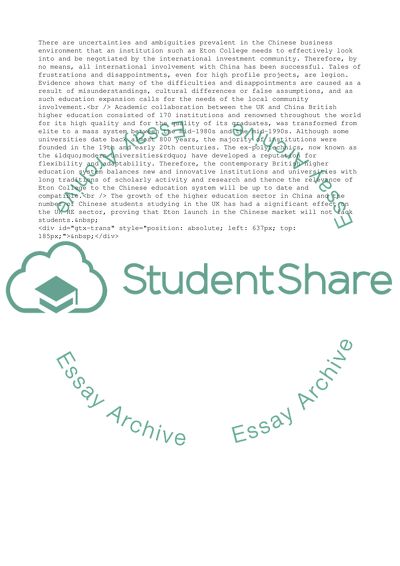Cite this document
(Developing International Operations in Education Sector Literature review - 15, n.d.)
Developing International Operations in Education Sector Literature review - 15. Retrieved from https://studentshare.org/management/1806801-operations-management
Developing International Operations in Education Sector Literature review - 15. Retrieved from https://studentshare.org/management/1806801-operations-management
(Developing International Operations in Education Sector Literature Review - 15)
Developing International Operations in Education Sector Literature Review - 15. https://studentshare.org/management/1806801-operations-management.
Developing International Operations in Education Sector Literature Review - 15. https://studentshare.org/management/1806801-operations-management.
“Developing International Operations in Education Sector Literature Review - 15”. https://studentshare.org/management/1806801-operations-management.


